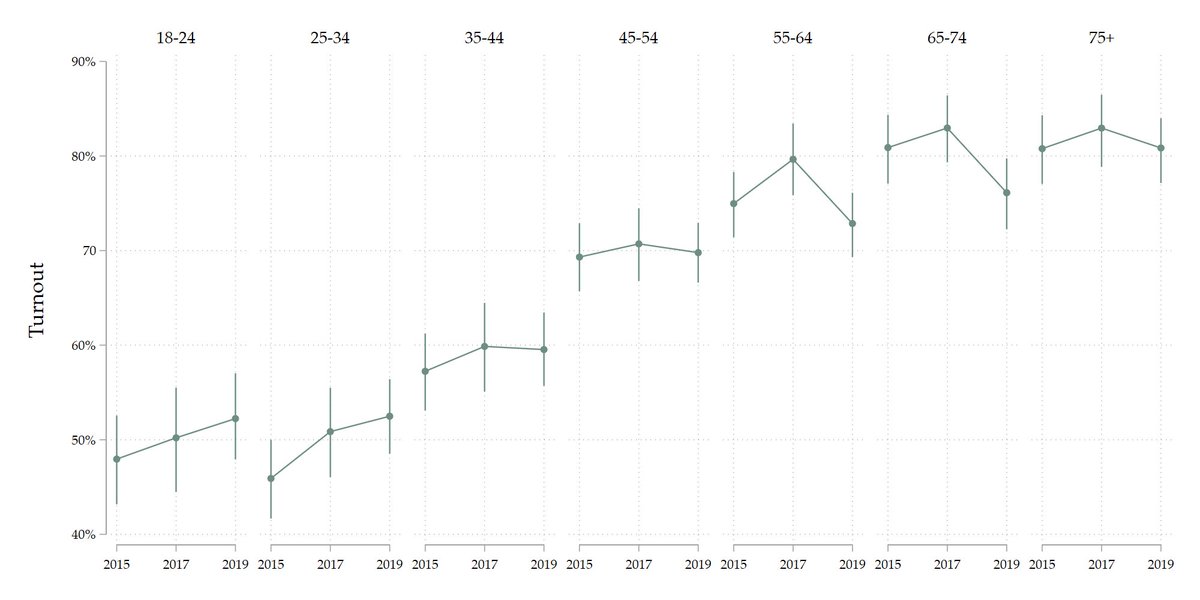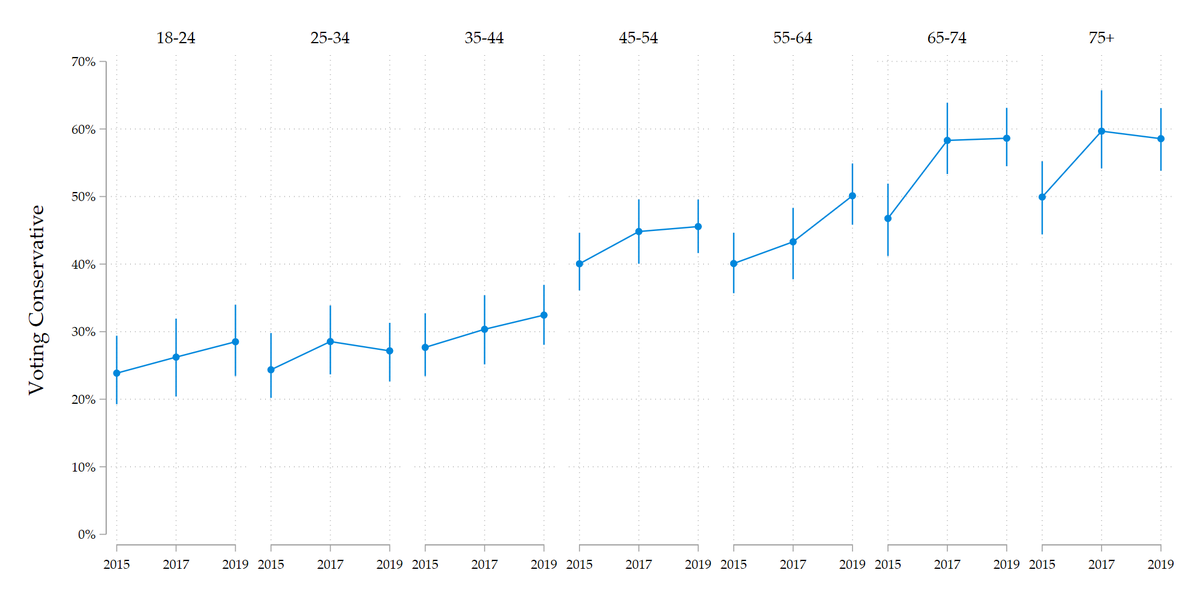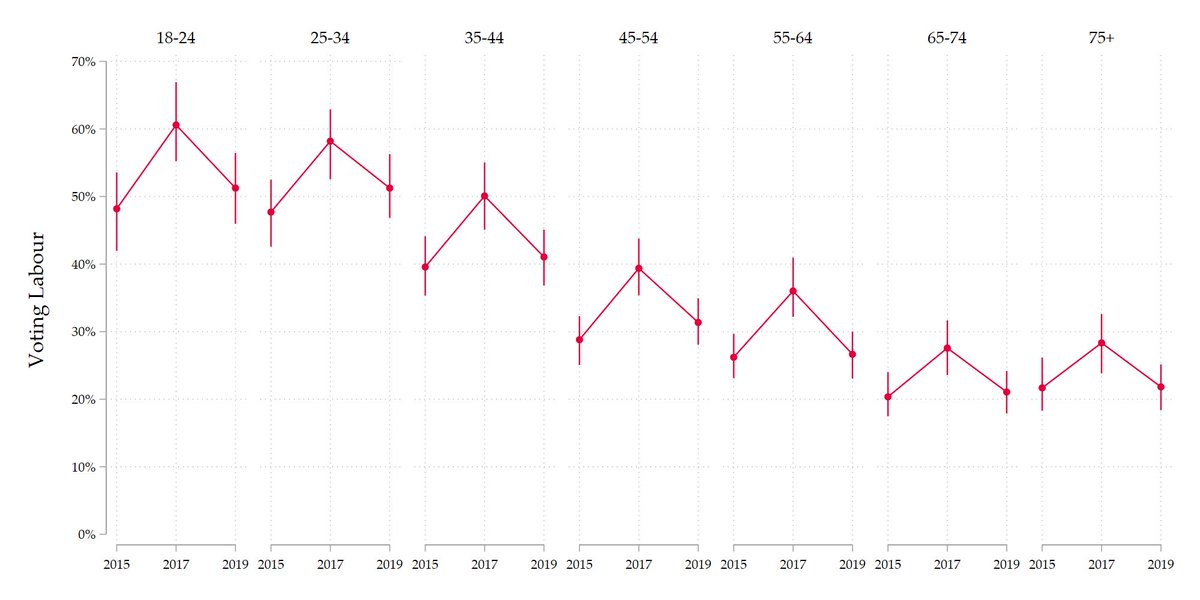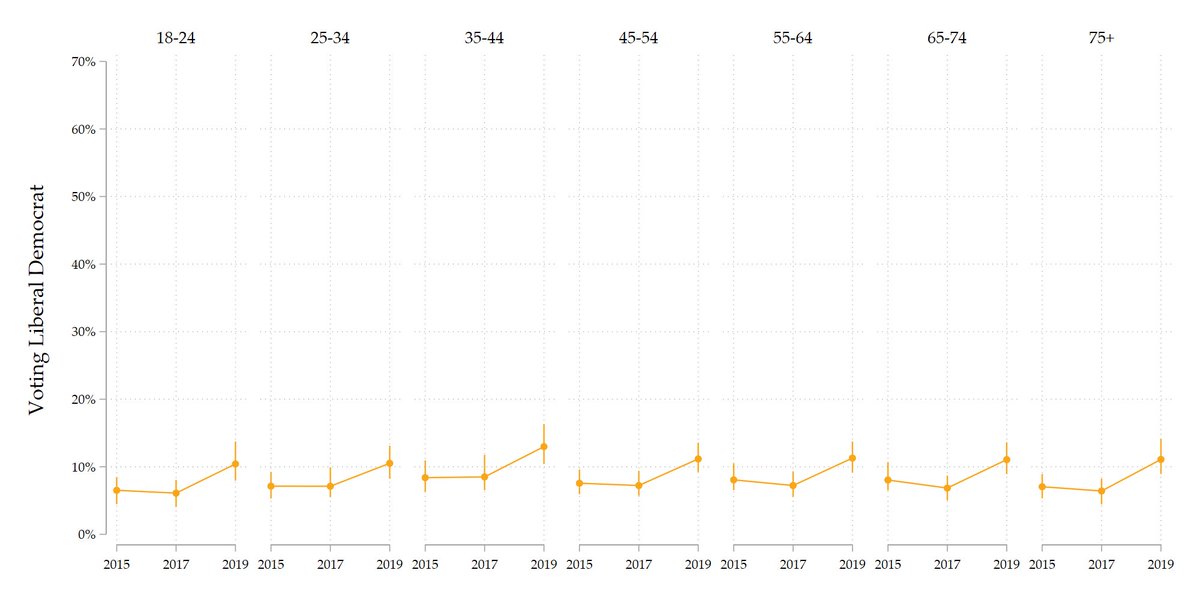
 The 2019 BES Post-Election Random Probability Survey is now LIVE!
The 2019 BES Post-Election Random Probability Survey is now LIVE!To download your copy of the data, click the link below:
https://www.britishelectionstudy.com/data-object/2019-british-election-study-post-election-random-probability-survey/
Using these data, we examine how the much discussed "age cleavage" in voting evolved at the 2019 GE.
In terms of turnout, the relationship is fairly stable across the last 3 elections: the young are less likely to to vote than the old, and turnout rises as people get older.
In terms of turnout, the relationship is fairly stable across the last 3 elections: the young are less likely to to vote than the old, and turnout rises as people get older.
Further, between 2015 and 2017 the Conservative party increased its share of the vote by about five percentage points, adding a further point in 2019. Most of that extra support in 2017 was from the two oldest age groups, who maintained their support in 2019.
Labour’s changes were more dramatic. From 2015 to 2017 Labour added about 10 pts before dropping 8 pts in 2019. This rise and fall occurred in all the age groups, but the changes are more dramatic amongst younger voters.
In 2015 and 2017, the Liberal Democrats languished on around 8% of the vote, before increasing their vote to 12% in 2019. Our data suggest that this increase happened relatively evenly across age groups.
So, in 2019 the relationship between age & vote choice was partly one of continuity – older people were much more likely to vote Conservative and younger people were much more likely to vote Labour.
But it was partly one of common trends too. Where the level of support changed, as it did for Labour and the Liberal Democrats, it did so in similar ways across age groups. And in 2015, 2017, and again in 2019, age was one of the most important predictors of how people voted.
Collecting gold-standard, random probability data like these is a tall order, so in the interest of transparency, we've also made available a release note to accompany the data's already extensive documentation:
https://www.britishelectionstudy.com/2019-general-election/the-bes-post-election-random-probability-survey-v-1-0-0-release-note
https://www.britishelectionstudy.com/2019-general-election/the-bes-post-election-random-probability-survey-v-1-0-0-release-note
Likewise, we also provide a summary of the decisions that we made to weight the data too:
https://www.britishelectionstudy.com/bes-resources/weighting-the-bes-post-election-random-probability-survey/
https://www.britishelectionstudy.com/bes-resources/weighting-the-bes-post-election-random-probability-survey/
Finally, a big thank you to @IpsosMORI and @NatCen who conducted the data collection necessary to make this survey possible given the current context 

For the technically-minded, @IpsosMORI also put together an excellent set of technical documents that explain how they collected the data and what accommodations they made in light of the pandemic https://www.britishelectionstudy.com/wp-content/uploads/2021/01/bes_rps_2019_tech.zip

 Read on Twitter
Read on Twitter





